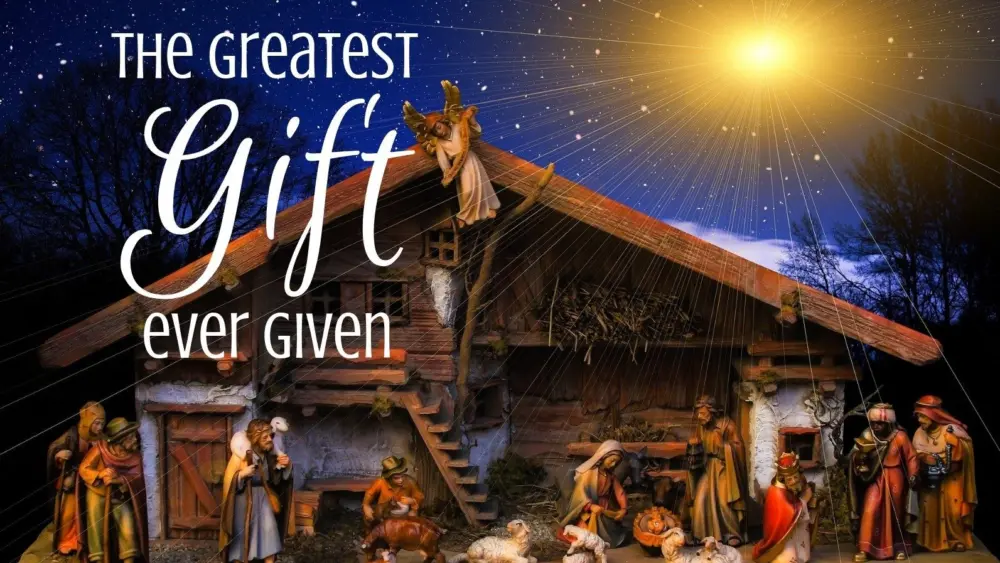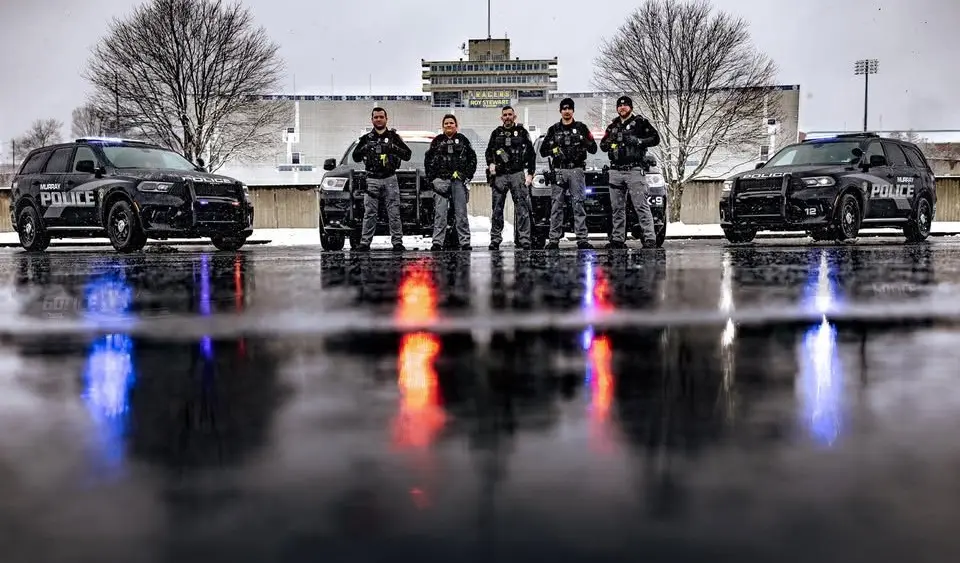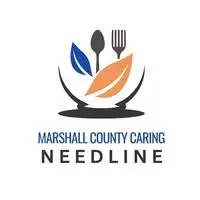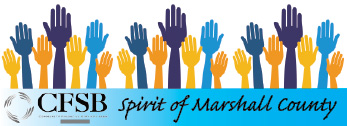
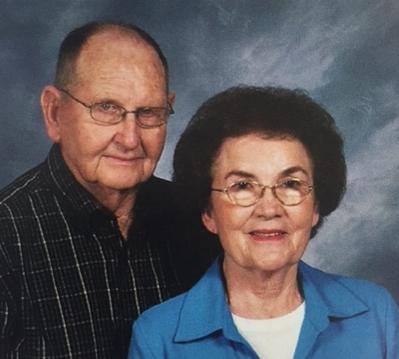
Some call him doctor. Some call him Mr. Tater Day. Others just call him friend.
Whatever you call him, Dr. Robert McCrory has proven a champion of Marshall County for more than a half century.
McCrory came to Marshall County with his family in the 1950s, establishing the Marshall County Veterinary Clinic in 1959 in Benton. The local vet has been working to take care of both livestock and furry family members of residents ever since. Longtime friend and animal owner Dr. David Cassity said it’s a testament to both McCrory’s work ethic and his character.
“To work with animals – and Bob still works with animals – he loves animals,” Cassity said. “He has to love being around animals or he would have gave it up a long time ago. And I think animals know if you’re a good person or not. I think animals can figure out real quick, ‘Are you here to help me, or are you here to just do a job?’ … I think that probably says a lot right there about his life.”
Compassionate and caring: Longtime friend Bobbie Foust said they are qualities that describe him well. Foust, who came to know McCrory through both his practice and in collaborative efforts during her tenure at The Marshall County Tribune-Courier, said she’d seen his love of animals first hand as the vet for her own dog, and she too felt it demonstrated that caring and devotion to his clientele.
“He enjoys animals,” Foust said. “He enjoys raising animals and being around animals. It takes a very compassionate person to be a doctor for animals. I have an ex son-in-law who is a very good veterinarian, and I have a granddaughter who has just been practicing veterinary medicine for a year, and we all have great respect for Dr. McCrory.”
That devotion extends not only to his work, but his community as well. McCrory has been involved throughout the years in various outreach efforts and civic organizations; most notably, McCrory has been an active member of the Benton Kiwanis Club for nearly 60 years. Cassity, a fellow Kiwanis member, said for about 50 of those he knew, McCrory had never missed a single meeting.
Though McCrory had spent that time within the group active, Cassity said that he was member that sought to get things done rather than rising through the membership ranks.
“He never went on into the bureaucracy of Kiwanis,” Cassity said. “He was content to let others do that and be the Indian and not the chief.”
It was no surprise to fellow Kiwanis member and friend Patricia McWane, who said McCrory was incredibly civic-minded and strove to improve the community around him. He was an advocate for improved signage and exposure for H.H. Lovett Park in Benton, but his most famous contribution came in his revitalization of the Tater Day tradition. It began as a trade day in 1843, but by the time McCrory made his start in Benton the event had begun to wan. McCrory saw potential, however, and through the Kiwanis Club he spearheaded efforts to bring it back into the forefront of the community. While the festival has shifted its focus throughout the years, McWane said McCrory was instrumental in its growth. Organizing the parade, the horse and mull pull and carnival attractions were only a few of the festival components McCrory was directly responsible for implementing.
“He’s been friends with Casey’s rides, which is out of the Owensboro area – that’s who comes to Tater Day every year with the rides,” she said. “He was instrumental in getting them here for Tater Day, and trying to beef Tater Day up to make it more of an event that people want to come to. He’s been very passionate about the Tater Day activities.”
It was a trial and error process, Cassity said. The roots of the festival were agriculturally based, something near and dear to McCrory’s heart. Tater Day has become established tradition in the changing landscape thanks in large part to McCrory.
“I would call him Mr. Tater Day,” Cassity said. “… When we made a puzzle several years ago for the community – and it had businesses and it was advertising and you’d see them displayed in various businesses – he was the model for Mr. Tater on the puzzle. … Bob has had a lot of ideas over the years to improve Benton.
“Tater Day, when he first came to Benton, people just kind of took Tater Day off and they kind of roamed around the court square, and there was not a whole lot to do,” Cassity added. “He was one of those that got it together.”
Cassity recalled events that had passed and some that took root in the evolution of the festival, including a beard-growing contest among Kiwanis members. A memory from childhood Cassity spoke on with some humor involved McCrory’s role in a city ordinance that prohibited peashooters during the month of April. Cassity said a local business had purchased a number of peashooters for kids in town.
“I’m guessing this was in the early ’60s,” Cassity said. “I was a kid. I was probably 3, 4, 5 years old, and I had one just like everybody else. Of course, in the parade, they’d take these peashooters and they would shoot them at the horses, and the horses would jump and that was fun, but actually it was dangerous.”
McCrory went to the business and offered to buy all of the peashooters. When the owner told him they’d just buy more, he took the matter to the city and managed to get an ordinance enacted. Cassity acknowledged that the details might be a little off base.
“But that’s the story I was told and I’m sticking to it,” he joked. “It’s one of those little laws that you look back on it and you’re going, it’s illegal to do this in certain cities; you know, a woman’s got to have a man go in front of her or you’ve got to have a horse.”
The festival’s revitalization remains one of his greatest accomplishments, Foust said. Events such as Tater Day will sometimes generate their share of negativity, but Foust said ultimately, the impact it has on the community is positive.
“Dr. McCrory saved Tater Day,” Foust said. “And some people dislike Tater Day, but Tater Day is a big festival. I have heard people in other places say that they would just give anything to have a festival like Tater Day, and to be able to promote their town. … People see what’s here, and perhaps they come back. Dr. McCrory saw the importance of this festival. … He’s been an asset to this community since he’s been here.”
And for McCrory, it’s very nearly a love affair. McWane said he’s stepped back from much of the coordination in the last few years, but no one knew the festival and its participants quite like McCrory. It comes from a love of community and people.
“He loves Marshall County and definitely has it at heart,” McWane said. “He definitely wants to help out anyone that needs help. From the Kiwanis standpoint, we’re always looking at avenues that we can give money back to the community and to children, and he very much has that mindset.”
It taps into the spirit of his desire to preserve community history, an effort he’s undertaken in many ways. McCrory in 2007 compiled a collection of photos, articles and stories on the history of Tater Day, authoring “Tater Day: History and Humor 1959-2006,” which remains on file at the Marshall County Public Library.
Most recently, McCrory approached Benton City Council members on initiating a project to paint murals depicting events and people of historical significance in Marshall County. That effort, which will partner with U.S. History students at Marshall County High School studying a unit of local history to help plan the mural, has taken off; the council last week approved seeking potential funding to paint and hang the mural on the side of the building bordering the Benton Memorial Plaza.
More than a civic leader and community historian, McCrory is a man devoted to his faith and his family. McWane said the local vet is active in his church as a member of the Central Church of Christ and the foundation of love and support for his wife Linda, their children and grandchildren.
That faith plays a critical role in his philosophy on life. Foust said McCrory is highly opinionated and conservative and the two have entirely different perspectives on the political spectrum. However, though she and McCrory held different opinions, it never stood in the way of their friendship, now 40 years strong.
“I would say to him: Dr. McCrory, I appreciate you more than you can possibly know, and more than I have words to express,” Foust said. “I know that you have done much greater things for this community than I am even aware of, and I am aware of many things that you have done.
“There needs to be more people like Dr. McCrory in this world,” Foust added.
